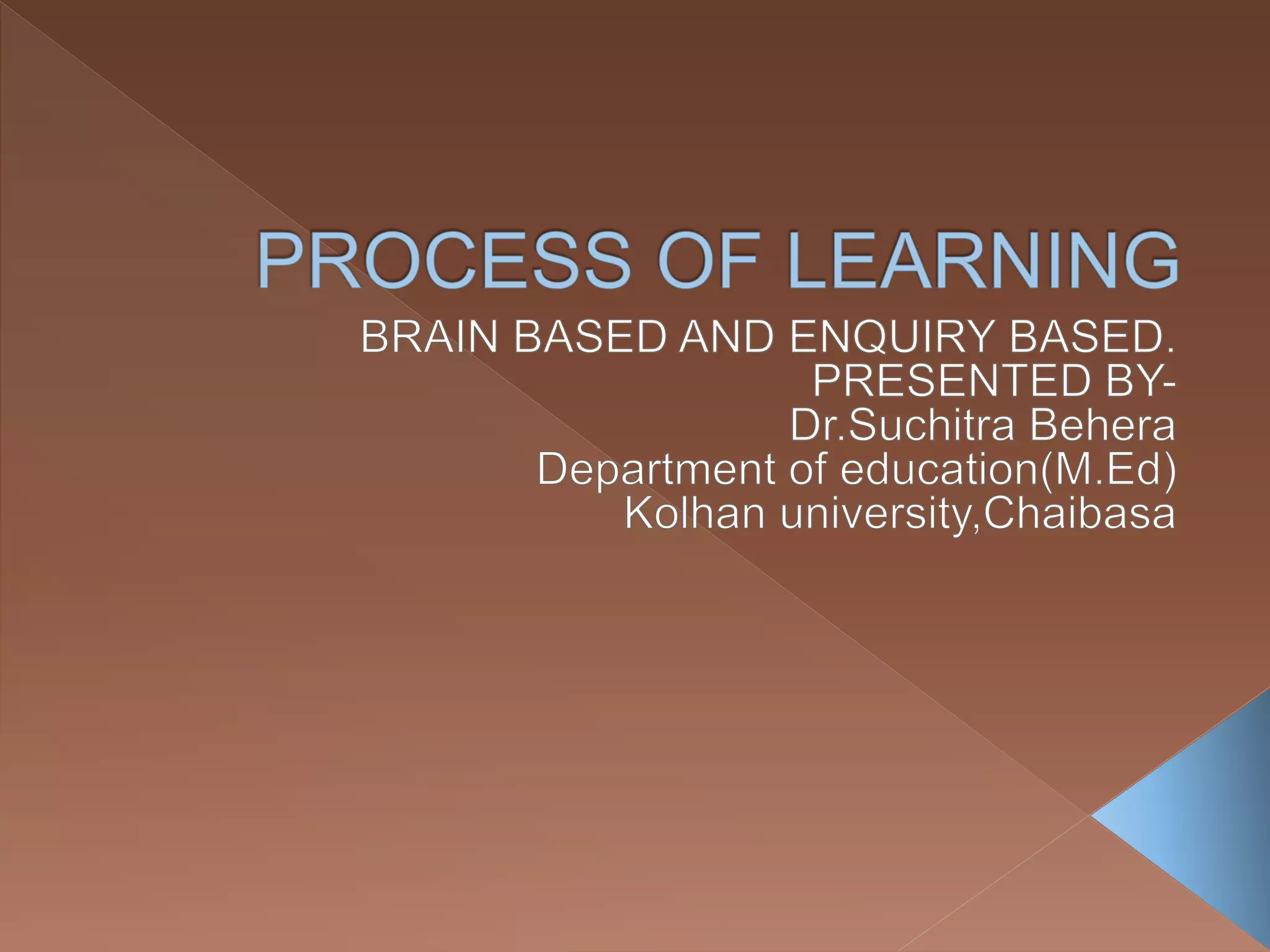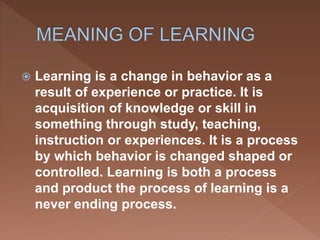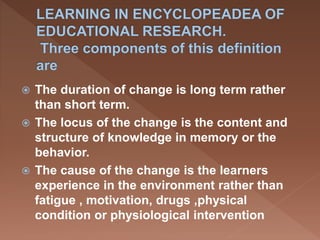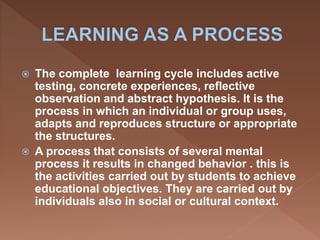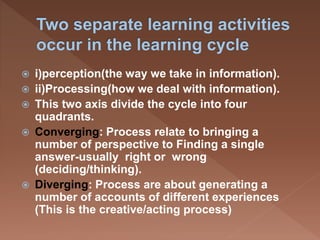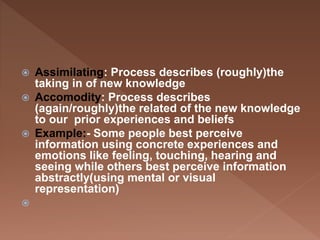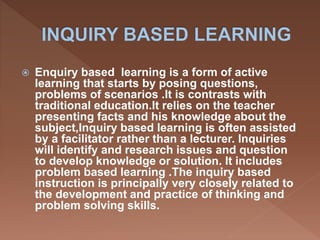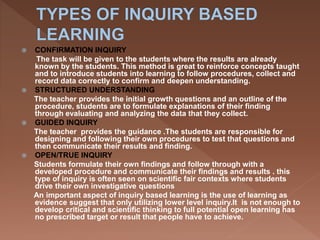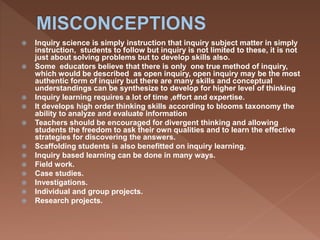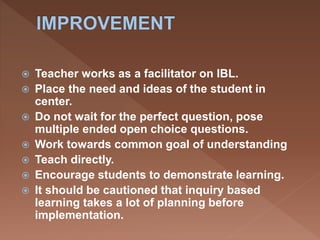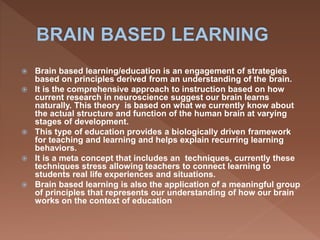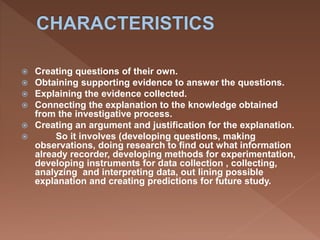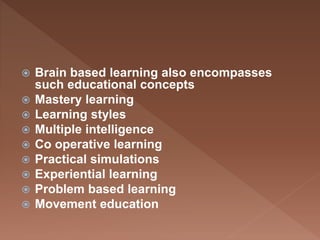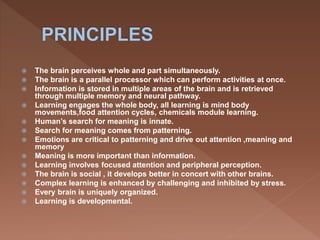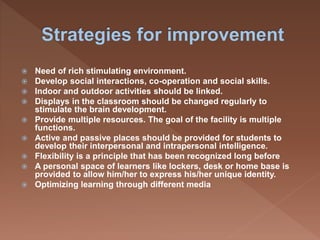Learning is a process of acquiring knowledge or skills through experience that results in long-term behavioral changes. The learning process involves perception, processing of information, and mental processes like converging and diverging thinking. There are different types of inquiry-based learning where students generate questions and design investigations to find answers, including open inquiry where students work independently. Brain-based learning uses strategies grounded in neuroscience research on how the brain naturally learns, and involves connecting lessons to real-life through experiential activities in a stimulating environment.
